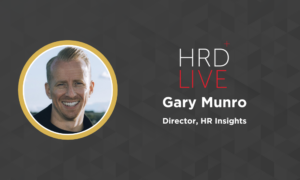Employee experience: why it matters now more than ever
- 5 Min Read
Employee experience has been high-up on the agenda for the HR function for several years now, but as is the case across the business world at present, COVID-19 has accelerated this. Belinda Gannaway, Director of Strategy – Culture, Fathom XP, explains further.
- Author: Belinda Gannaway
- Date published: Nov 24, 2020
- Categories

In recent years, understanding and meeting the needs of employees has become an increasing focus for growing numbers of organizations of all shapes and sizes. However, some commentators are suggesting that COVID-19 will push employee experience (EX) down the priority list as organizations struggle with new challenges.
While we understand the thinking, we believe the case for employee experience is as compelling as ever – even if some of the drivers shift as the world adjusts to the pandemic fallout. Gartner HR’s latest research into 2021 priorities supports our position, citing EX as a top five priority. Before we look at how the business case for EX might change as a result of COVID-19, let’s consider the case for EX to-date.
The pre-COVID EX business case
Of the organizations we have supported over the last few years, attraction and retention repeatedly feature as the primary reasons for focusing on EX. Perhaps that’s unsurprising; after all, just last year 97% of execs (according to Mercer’s Global Talent Trends Study) reported increasing competition for talent, and more than half expressed concern about the time it would take to fill positions.
Against this backdrop, employees have increasingly been seen as consumers of the workplace. So, it makes sense that employers have been taking time to first understand what a good experience looks like for them, and then taking steps to deliver on it.
What’s more, evidence suggests an EX focus does help to attract and keep talent. Future of work strategist and author Jacob Morgan reports that the companies which invest most heavily in EX feature 11 times more often in Glassdoor’s Best Places to Work, and more than four times as often in LinkedIn’s list of North America’s Most In-Demand Employers.
When it comes to directly impacting employee behavior, IBM research suggests that employees with more positive experiences at work are 52% less likely to intend to leave their organizations. And Gartner research from 2019 tells a similar story. It found that employees who are satisfied with their experience are 60% more likely to say they want to stay with their employer.
So the attraction and retention case for focusing on EX stacks up; but it is far from the only reason.
Beyond attraction and retention
In our new book we take a look at 20-year-old empirical research that was among the first to make the link between employee attitudes and organizational performance. Much evidence has been produced since that emphasizes this connection between the experience employers give their people and organizational success.
Among the most recent is Willis Towers Watson’s in 2019, claiming a predictive link between employee experience and financial performance. Their findings clearly position EX at the heart of an organization’s ability to deliver exceptional customer experience and superior financial performance. Digging a big deeper with the organizations we support, we see growth, culture change, wellbeing, competitive advantage and performance all feature as reasons for looking at EX.
So, if EX continues to be a priority, how will COVID impact these drivers?
How COVID-19 changes the business case
Despite a global recession and ongoing rounds of restructuring and redundancies, finding and keeping great people will remain a priority for organizations that want to thrive. It’s arguably more critical than ever given heightened demand for a wide range of new skills – a demand many development programs aren’t able to keep up with.
Then there’s the impact of the pandemic on employee lives, both at work and beyond. The human cost of this pandemic goes way beyond the physical health implications. As organizations navigate the fallout, employees are being asked to exist in new environments, think in new ways, and act differently.
Employees are already fatigued by the rate of change in recent months. The ongoing learning curve we are all having to climb is not without significant emotional and physical challenge for leaders, managers and everyone working in any organization.
In many instances, leaders have stepped up in recent months and made sweeping changes to address employees’ most pressing needs. The first wave of the pandemic saw many organizations responding well to their people’s needs for support, reassurance, information and flexible working arrangements. Basic human needs of safety, stability and security were ably and sensitively understood and met.
These efforts have helped to build trust and engagement in many organizations. In fact, according to employee engagement platform Peakon, which regularly surveys 10 million people, there is a 2% rise in global employee engagement.
Of course, many headlines tell the opposite story. But largely, organizations have so far done a good job of understanding and addressing employees’ needs and expectations during the pandemic. Now is not the time for leaders to take their foot off the pedal.
The sort of learning and adjustment asked of people to enable organizations to adapt at speed will require even more of a focus on understanding and meeting human needs and expectations.
Evidence already points to how a good EX enables greater innovation – Gartner’s 2019 research found that employees who are satisfied with their experience are 89% more likely to meet organizational innovation goals. EX as an enabler of innovation will become increasingly important in the coming months and years as organizations are forced to constantly transform.
Working continuously, with empathy and collaboration, to understand and address employee needs and expectations will become vital for organizational survival.
Time to make your case
Wherever you are on your EX journey, the evidence for focusing on EX is useful for convincing skeptical stakeholders or renewing energy around EX as a strategic priority. Every organization is different, and so getting clear on exactly why it matters is vital to ensuring it stays a priority.
To ensure it lands, build the case using clear objectives which are aligned with the business strategy and outline potential return on experience.








